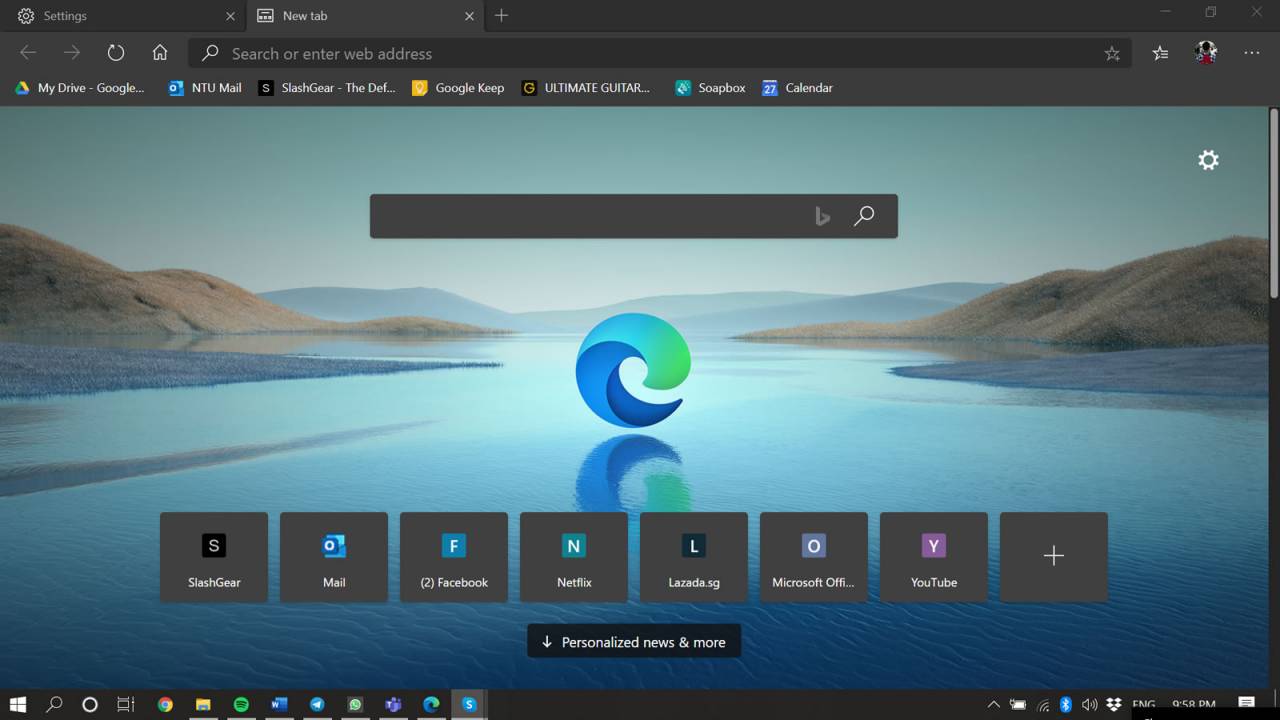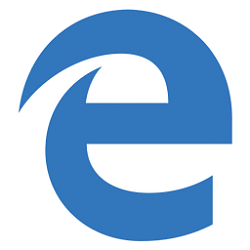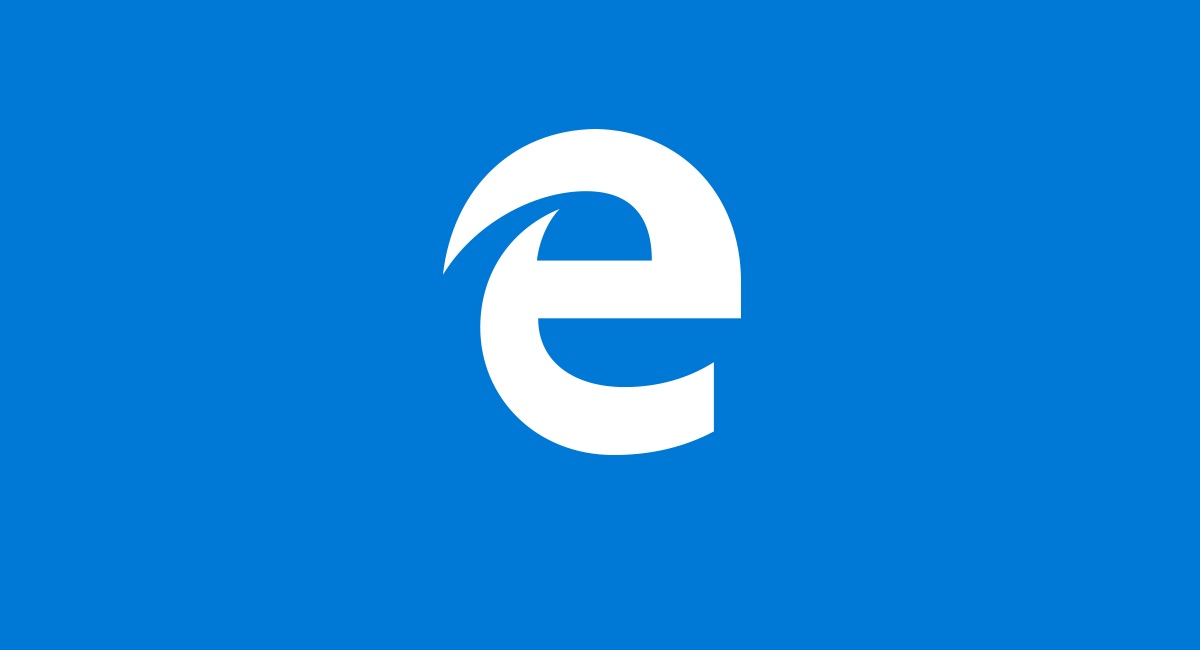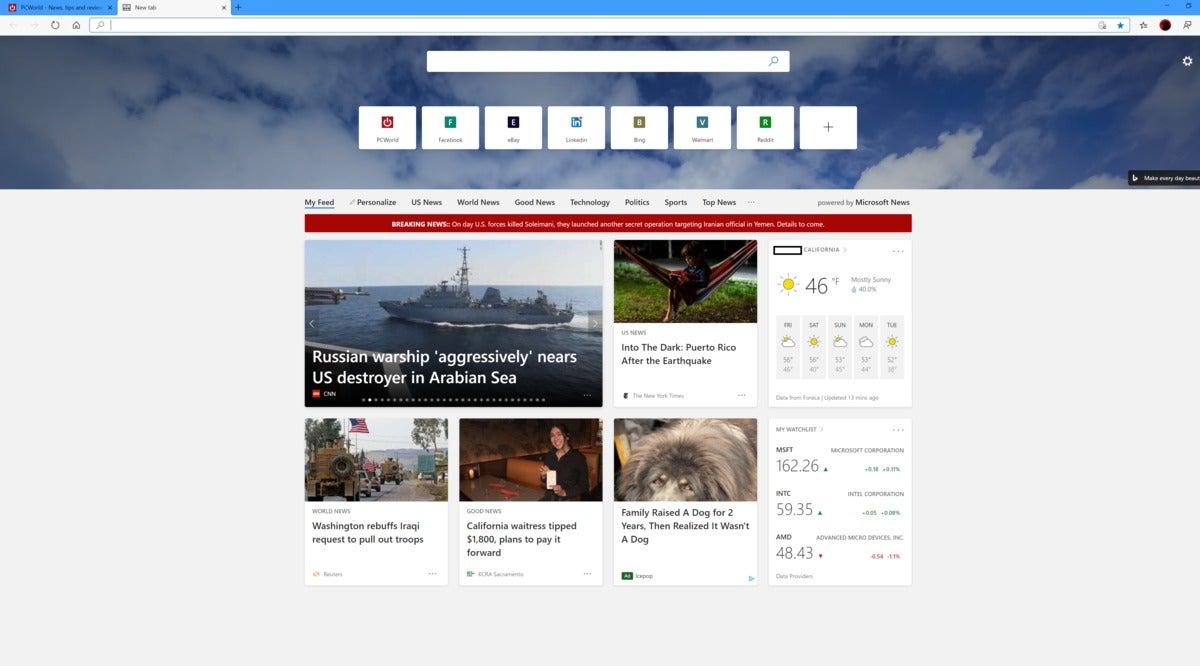An extension is a small program that you (a developer) use to add or modify features for Microsoft Edge (Chromium). An extension is intended to improve a user's day-to-day browsing experience. It provides niche functionality that is important to a target audience.
You may create an extension if you have an idea or product that is based upon either of the following conditions.
Chromium is found naturally in rocks, soil, plants and animals, but can also be introduced into the environment as a result of human activity. Like many elements, chromium is found in multiple oxidation states, which can vary significantly in their toxicity, nutritional value, bioactivity, and environmental mobility. Microsoft Edge for business The browser for business is here. Built on Chromium open source, backed by Microsoft security and innovation.
Beginning Wednesday, the era of the “traditional” Microsoft Edge will come to an end—for consumers, anyway. Microsoft said in November that the new Chromium-based Edge would begin replacing. The new Microsoft Edge is based on Chromium and was released on January 15, 2020. It is compatible with all supported versions of Windows, and macOS. With speed, performance, best in class compatibility for websites and extensions, and built-in privacy and security features, it's the only browser you'll ever need. Try the new Microsoft Edge now.
- A specific web browser.
- Improvements to features of specific webpages.
Examples of companion experiences include ad blockers and password managers.
Ms Chromium Edge Browser
An extension is structured similar to a regular web app. At a minimum, it should include the following features.
- An app manifest JSON file that contains basic platform information.
- A JavaScript file that define functionality.
- HTML and CSS files that define the user interface.
To work directly with part of the browser, such as a window or tab, you must send API requests and often reference the browser by name.
Basic guidance
Some of the most popular browsers to build extensions for include Safari, Firefox, Chrome, Opera, Brave, and Microsoft Edge. Great places to begin your extension development tutorials and documentation research are sites hosted by the browser organizations. The following table isn't definitive, and may be used as a starting point.
| Web browser | Chromium-based? | Extension development webpage |
|---|---|---|
| Safari | No | developer.apple.com/documentation/safariservices/safari_app_extensions |
| Firefox | No | developer.mozilla.org/docs/Mozilla/Add-ons/WebExtensions |
| Chrome | Yes | developer.chrome.com/extensions |
| Opera | Yes | dev.opera.com/extensions |
| Brave | Yes | Uses Chrome Web Store |
| new Microsoft Edge | Yes | developer.microsoft.com/microsoft-edge/extensions |
Important
Many of the tutorials of the sites use browser-specific APIs that may not match the browser for which you develop. In most cases, a Chromium extension works as-is in different Chromium browsers and the APIs work as expected. Only some less common APIs may be strictly browser-specific. For links to the tutorials, navigate to See also.
Why Chromium?

If your goal is to publish your extension in the extensions store for each browser, it must be modified for each version to target and run in each distinct browser environment. For example, Safari extensions may use both web and native code to communicate with counterpart native applications. The last four browsers in the previous table use the same code package, and minimizes the requirement to maintain parallel versions. These browsers are based on the Chromium open-source project.
Create a Chromium extension to write the least amount of code. It also targets the maximum number of extension stores and ultimately the maximum number of users who find and acquire your extension.
The following content focuses mostly on Chromium extensions.
Ms Chromium Download
Browser compatibility and extension testing
Occasionally, API parity doesn't exist between Chromium browsers. For example, there are differences in the identity and payment APIs. To ensure your extension meets customer expectations, review API status through the following official browser docs.
The APIs you require define the changes you must make to address the differences between each browser. It may mean that you must create slightly different code packages with small differences for each store.
To test your extension in different environments before you submit it to a browser store, sideload it into your browser while you develop it.
Publish your extension to browser stores

You may submit and seek browser extensions in the following browser stores.
Some stores allow you to download listed extensions from other browsers. However, cross-browser access is not guaranteed by browser stores. To ensure your users find your extension in different browsers, you should maintain a listing on each browser extension store.
Users may need to install your extension in different browsers. In this scenario, you may migrate existing Chromium extensions from one browser to another.
Migrate an existing extension to Microsoft Edge
Ms And Chromium
If you've already developed an extension for another Chromium browser, you may submit it to the Microsoft Edge Add-ons store. You don't need to rewrite your extension, and must verify it works in Microsoft Edge. When you migrate an existing Chromium extension to other Chromium browsers, ensure the same APIs or alternatives are available for your target browser.
For more information on porting your Chrome extension to Microsoft Edge, navigate to Port Chrome extensions to Microsoft Edge (Chromium). After you port your extension to the target browser, the next step is to publish it.
Publish to the Microsoft Edge add-ons website
To start publishing your extension to Microsoft Edge, you must register for a developer account with an MSA email account to submit your extension listing to the store. An MSA email account includes @outlook.com, @live.com, and so on. When you choose an email address to register, consider if you must transfer or share ownership of the extension with others in your organization. After registration is complete, you may create a new extension submission to the store.
To submit your extension to the store, ensure you provide the following items.
- An archive (
.zip) file that contains your code files. - All required visual assets, which include a logo and small promotional tile.
- Optional promotional media, such as screenshots, promotional tiles, and a video URL.
- Information that describes your extension such as the name, short description, and a privacy policy link.
Note
Different stores may have different submission requirements. The above list summarizes the requirements to publish an extension for Microsoft Edge.

After you've successfully submitted your extension, your extension undergoes a review process and either passes or fails the certification process. Owners are notified of the outcome and given next steps as required. If you submit an extension update to the store, a new review process is started.
See also

The technology behind Google Chrome is from the open source project called Chromium which has also facilitated the creation of derivative browsers such as SRWare Iron, Comodo Dragon and even Opera's new-generation browser is based off of Chromium.
In terms of web technology and standards, Chromium is at the bleeding edge but does not include the type of tracking that other browsers might.
Chromium provides an experience that is finely tuned to work with all types of web sites and online services including Google. In fact, their search engine still advertises Google Chrome to users searching from rival browsers like Firefox and Internet Explorer. What makes Chromium different from Chrome is that it's not completely integrated with the Google ecosystem and anybody can fork from it.
In the end, Chromium is not for everybody and its minimalist interface may take some getting used to. On the other hand, it's great for heavy Google users that wish to synchronize their Google experience across multiple devices such as desktops, notebooks and mobile phones powered by Android.
Chromium 92.0.4484.0 on 32-bit and 64-bit PCs
This download is licensed as freeware for the Windows (32-bit and 64-bit) operating system on a laptop or desktop PC from web browsers without restrictions. Chromium 92.0.4484.0 is available to all software users as a free download for Windows. As an open source project, you are free to view the source code and distribute this software application freely.
Filed under:- Chromium Download
- Freeware Web Browsers
- Open source and GPL software
- Major release: Chromium 92.0
- Internet Browsing Software




